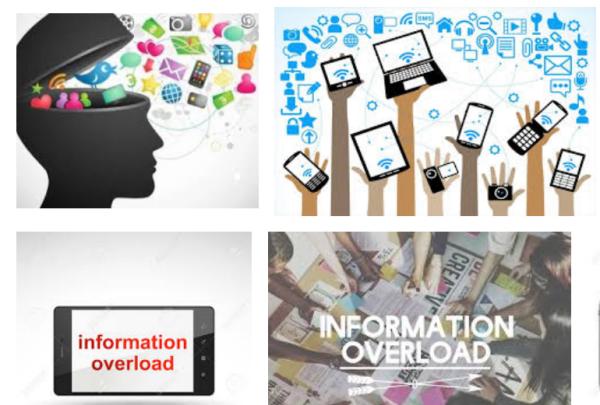Four BAD online habits you very likely have
Here are four habits that make millions of people waste huge amounts of time, often without even making them feel better.

Ignoring RSS, or refusing to use it
Social networks need to make you feel good. To achieve this goal, they deliberately hide how things are really going, to show you only what they think it’s good for you. The solution is to get complete lists of news, directly from the real sources, is much easier than you think and is called “RSS” (Rich Site Summary). RSS is a really simple system to automatically download complete lists of new content from any combination of websites you want, and browse them all together, without advertising, filters and other annoyances. Time consuming? Quite the contrary. RSS “aggregators” do not continuously distract you with notifications, or mixing kitten pictures with real news.
(update 2018/2/15: the same point is made very well in “Track RSS Feeds (Yes RSS) with Feedly”)
Using the wrong TYPE of Instant Messaging systems
How many of the instant messages that you received in the last 1, 2, 5… years really needed to be instantaneous (assuming they needed to exist in the first place…), or to receive an instantaneous answer? Any kind of Instant Messaging (IM) is as (apparently) convenient, as inherently anxiogenic. IM systems that use phone numbers as user names are the worst ones. By forcing you to have one account per phone (OK, per SIM, but is almost the same) they contribute to context collapse, making it impossible to be reachable by your coworkers but not by your friends, or vice-versa. You deserve better than that. Use IM systems that let you use as many separate accounts you want from the same device, and use them as little as possible. Those based on XMPP may probably be a good choice.
Going “mobile ONLY”
What used to be called “mobile internet” is now just the internet., because, as explained here “we spend around 70% of our time on the internet on phones”. Which is bad, because mobile devices make it easier to live passively, and because “awkward text entry = less _democracy” (see also the next point). Oh, and browsing the Web only via mobile devices may make you even more “filtered”. Don’t forget how to use a real, complete computer, or learn it if you never did. It’s worth the extra effort.
Preferring images (or video) to text, NO MATTER WHAT
Images and video are great… whenever they actually are the best way to share some information. But there are still many cases where sharing text is much more efficient. Don’t be afraid to write, or read. If you share an image made of text, as is common today on social networks, nobody can copy and paste that text, for example. If you share a video of you talking 5 minutes, instead of a text saying the same things, you are forcing everybody to spend 5 minutes, instead of reading at the speed they prefer.
Who writes this, why, and how to help
I am Marco Fioretti, tech writer and aspiring polymath doing human-digital research and popularization.
I do it because YOUR civil rights and the quality of YOUR life depend every year more on how software is used AROUND you.
To this end, I have already shared more than a million words on this blog, without any paywall or user tracking, and am sharing the next million through a newsletter, also without any paywall.
The more direct support I get, the more I can continue to inform for free parents, teachers, decision makers, and everybody else who should know more stuff like this. You can support me with paid subscriptions to my newsletter, donations via PayPal (mfioretti@nexaima.net) or LiberaPay, or in any of the other ways listed here.THANKS for your support!